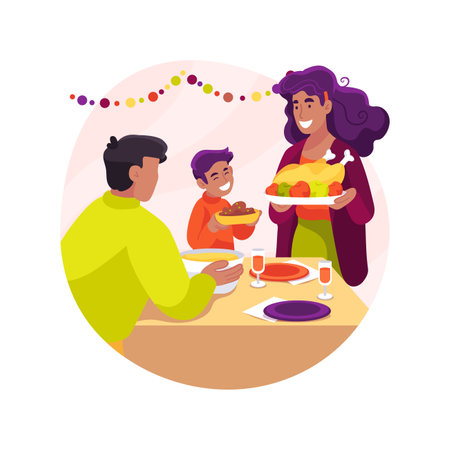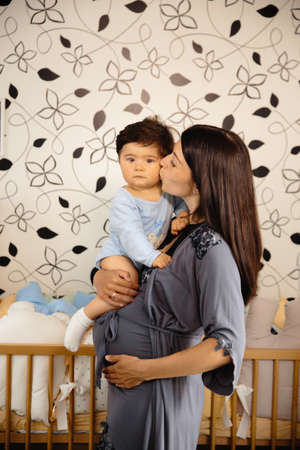Understanding Diversity in British Families
Modern British society is a vibrant mosaic of cultures, ethnicities, and traditions. Today’s families come from a multitude of backgrounds, each contributing unique values and practices that enrich the upbringing of children across the UK. The diversity found within British households reflects broader societal changes, with family structures now including nuclear families, single-parent homes, blended families, and multi-generational living arrangements. Recognising these differences is vital in appreciating how the next generation is shaped by a variety of beliefs and customs.
The Rich Tapestry of British Family Life
As immigration and global connectivity continue to influence British society, families are increasingly blending traditional customs with contemporary British values. This integration creates an environment where children grow up learning to respect and celebrate differences while forming their own identities. Schools, healthcare providers, and community organisations play a crucial role in supporting this diversity by acknowledging various cultural norms around parenting, diet, celebrations, and family roles.
Common Family Structures in Modern Britain
| Family Structure | Description |
|---|---|
| Nuclear Family | Two parents and their children living together |
| Single-Parent Family | One parent raising one or more children |
| Blended Family | Families formed by remarriage or new partnerships, including step-parents and step-siblings |
| Extended Family | Multiple generations living together or maintaining close relationships |
The Impact on the Next Generation
Children raised in such diverse environments benefit from broader perspectives and enhanced adaptability. They learn tolerance, open-mindedness, and the importance of inclusion—skills essential for thriving in modern Britain. As we explore further, it becomes clear that celebrating diversity within families not only strengthens communities but also lays the foundation for a more cohesive society.
2. Celebrating Family Traditions: Stories from Across the UK
The United Kingdom is a tapestry of diverse cultures and communities, each contributing their unique family traditions to British society. Embracing these practices not only enriches family life but also helps children develop respect and understanding for different backgrounds. Below, we explore how families from England, Scotland, Wales, and Northern Ireland celebrate their heritage through time-honoured customs.
England: Multicultural Festivities at Home
In many English households, it is common to blend traditional British celebrations with customs from ancestral roots. For example, Diwali lights may brighten windows in Leicester alongside Christmas wreaths, while Chinese New Year feasts are enjoyed in London’s vibrant neighbourhoods. These multicultural approaches foster a sense of belonging and pride in children growing up with dual or multiple heritages.
Scotland: Highland Gatherings and Ceilidhs
Scottish families often integrate music and dance into their upbringing. The ceilidh—a lively social event featuring folk music and group dances—is a cherished tradition passed down through generations. In rural areas, children participate in Highland Games, learning about strength, community spirit, and Scottish history through sport and storytelling.
Wales: Eisteddfodau and St. David’s Day
Welsh families celebrate their rich language and arts through the tradition of Eisteddfodau—festivals of poetry, music, and performance. On St. David’s Day, children proudly wear daffodils or leeks and participate in school assemblies that highlight Welsh folklore and songs. These events instil confidence in cultural identity from an early age.
Northern Ireland: Community Gatherings and Storytelling
In Northern Ireland, family traditions often revolve around community gatherings such as harvest suppers or Ulster-Scots Burns Night celebrations. Storytelling remains at the heart of many households, with tales passed down orally to reinforce values, resilience, and connection to local history.
Family Traditions Across the UK: A Snapshot
| Nation/Region | Tradition | Main Features |
|---|---|---|
| England | Multicultural Festivals | Celebrating Diwali, Chinese New Year, Eid alongside British holidays |
| Scotland | Ceilidhs & Highland Games | Dancing, music, athletic competitions for all ages |
| Wales | Eisteddfodau & St. David’s Day | Cultural performances, wearing national symbols like leeks or daffodils |
| Northern Ireland | Barns Suppers & Storytelling Nights | Community meals, oral history sharing with family members |
This celebration of diversity through family traditions not only strengthens ties within communities but also prepares the next generation to appreciate and respect the richness of modern British life.

3. Respect and Inclusion in Childhood Upbringing
Encouraging respect and inclusion from an early age lays the foundation for a cohesive, multicultural British society. Within families, nurseries, and schools, it is essential to foster environments where every child feels valued and understood, regardless of their cultural or familial background. This begins with positive communication—listening actively, using affirming language, and celebrating differences as strengths rather than obstacles.
Strategies for Fostering Respect and Inclusion
Setting |
Approach |
Example in Practice |
|---|---|---|
Family |
Encourage open dialogue about traditions and values; share family stories from both parents’ backgrounds. | Discussing different holiday customs or foods around the dinner table, emphasising curiosity over judgement. |
Nursery |
Introduce inclusive activities that reflect various cultures; read books featuring diverse characters. | Organising a “Cultural Day” where children bring objects or stories from their heritage to share with peers. |
School |
Create policies that celebrate diversity and address discrimination; integrate multicultural topics into lessons. | Including Black History Month projects or inviting guest speakers from local communities to discuss their experiences. |
Positive communication is crucial—using British English phrases like “let’s have a chat about your traditions” or “tell me what makes your family unique” helps children feel comfortable expressing themselves. Educators and parents should model acceptance by respecting each child’s way of life, teaching that everyone’s background adds value to the wider community. By weaving these practices into daily life, we nurture empathy and mutual understanding, equipping children in Britain to thrive in a richly diverse world.
Integrating Heritage with British Customs
Blending cultural heritage with British customs is a meaningful way to enrich family life and support childrens sense of identity. In the UK, families from diverse backgrounds can create a harmonious environment where both ancestral traditions and local customs are valued. This integration not only fosters belonging but also instils pride in children as they grow up in a multicultural society.
Everyday Life: Small Actions, Big Impact
Incorporating elements from your heritage into daily routines can be simple yet impactful. For example, you might prepare traditional dishes alongside British favourites or use both your native language and English during family conversations. Reading stories from your culture as well as classic British tales at bedtime offers children a rich literary experience.
Family Celebrations: Creating Meaningful Memories
Family gatherings present ideal opportunities to merge traditions. You could celebrate Diwali or Eid while also embracing Christmas or Bonfire Night. Inviting friends and neighbours to these events can help promote understanding and appreciation of different cultures within your community. It is beneficial for children to see their unique background celebrated openly and confidently.
Special Occasions: Marking Milestones Together
For key milestones such as birthdays, religious ceremonies, or national holidays, consider blending rituals from both cultures. For instance, combining a traditional naming ceremony with a British-style tea party allows children to enjoy the best of both worlds. Below is a table with examples of how families can integrate heritage with British customs during various events:
| Event | Heritage Tradition | British Custom | Integration Idea |
|---|---|---|---|
| Birthday | Cultural music & attire | Cake & party games | Wear traditional dress, sing songs in both languages, enjoy classic British games |
| Religious Holiday | Traditional prayers & food | Community gathering or charity event | Begin with cultural rituals, followed by a shared meal and local community involvement |
| National Day/Festival | Cultural performances | Decorate home with Union Jack flags | Host performances at home, decorate using both cultural symbols and UK flags |
| School Events | Cultural crafts or snacks for classmates | Dressing up for World Book Day or Red Nose Day | Create crafts that reflect both heritages, participate in school activities while sharing your cultures treats or stories |
Nurturing this dual identity equips children to navigate their multicultural world with confidence and openness. Encouraging them to take part in both heritage and British activities helps lay strong foundations for respect, empathy, and lifelong pride in who they are.
5. Resources and Support for Multicultural Families
Raising children in multicultural households within the UK can be both enriching and challenging. Fortunately, there is a wealth of resources, local support networks, and community programmes designed to assist parents and caregivers as they celebrate diversity and integrate family traditions into British upbringing.
National Organisations and Online Resources
Across the UK, several organisations provide guidance, advocacy, and educational materials tailored to multicultural families. These include:
| Organisation | Support Offered | Contact / Website |
|---|---|---|
| Family Lives | Parenting advice, multicultural family support, helpline | familylives.org.uk |
| The Refugee Council | Support for refugee families, integration resources | refugeecouncil.org.uk |
| Mosaic (Barnardo’s) | Cultural identity workshops for children and parents | barnardos.org.uk/mosaic |
| NHS Choices – Parenting Hub | Multilingual health information for families | nhs.uk/conditions/pregnancy-and-baby/ |
Local Community Networks and Programmes
Local councils and community centres often organise programmes that promote cultural exchange and offer practical support. These may include language classes, heritage celebrations, parenting workshops, and playgroups specifically welcoming diverse families. For example:
- Borough Family Centres: Many boroughs in cities like London, Manchester, Birmingham, and Glasgow run regular multicultural events where families can share experiences and build networks.
- Faith-Based Groups: Churches, mosques, synagogues, temples, and other places of worship frequently host multicultural activities open to all community members.
- Libraries: Local libraries often have bilingual story times and multicultural holiday events to encourage cultural understanding from an early age.
Accessing Support Services Near You
If you are unsure where to start, your local council website typically lists nearby community groups and services. Health visitors and GP surgeries can also direct you towards culturally sensitive health or parenting support. Additionally, many schools have family liaison officers who specialise in supporting multilingual or multicultural households.
The Importance of Connection and Shared Experience
By tapping into these resources and networks, multicultural families in the UK not only receive practical help but also find a sense of belonging. Sharing traditions within a supportive environment fosters confidence in children’s identities while strengthening familial bonds—essential elements in celebrating diversity through every stage of upbringing.
6. Practical Tips for Parents and Caregivers
Evidence-Based Strategies to Foster Diversity and Family Traditions
Nurturing diversity while upholding family traditions in the British context can be both rewarding and challenging. Here are practical, evidence-based tips for parents and caregivers to help children celebrate their heritage and integrate seamlessly into British society.
1. Create Inclusive Home Environments
Encourage open conversations about different cultures, values, and experiences. Display cultural artefacts, books, or artwork from your familys background alongside British items to foster a sense of belonging.
2. Celebrate Cultural Festivals Together
Participate in both British and your familys traditional festivals. This not only helps children understand their roots but also teaches them about wider British customs. Involve friends and neighbours to promote inclusivity.
3. Embrace Multilingualism
If you speak another language at home, encourage its use alongside English. Research shows bilingualism enhances cognitive development and cultural awareness. Designate specific times or activities for each language to maintain balance.
4. Encourage Cross-Cultural Friendships
Support children in building friendships with peers from various backgrounds at school, clubs, or community events. This broadens their worldview and strengthens social skills essential in multicultural Britain.
Practical Integration Strategies Table
| Strategy | How To Apply | Benefits |
|---|---|---|
| Cultural Storytelling Night | Share stories from both family heritage and British folklore weekly | Enhances identity and mutual respect |
| Diversity Days at Home | Cook traditional dishes from different cultures including British cuisine together | Promotes appreciation of diversity through shared experiences |
| Bilingual Bedtime Routine | Read bedtime stories alternating between languages | Supports language retention and bonding |
| Cultural Exchange Playdates | Organise playdates with families from diverse backgrounds | Encourages empathy and cultural competence |
| Attend Local Cultural Events | Visit museums, exhibitions, or festivals highlighting various traditions in the UK | Connects children with broader community values |
5. Foster Open Dialogue About Identity
Create a safe space where children feel comfortable discussing their feelings about identity, difference, or belonging. Use active listening and positive reinforcement to support their journey of self-discovery.
6. Model Respectful Attitudes and Behaviours
Your attitudes towards diversity significantly influence your child’s outlook. Demonstrate inclusive behaviour—such as respecting different perspectives—and address stereotypes or biases constructively when they arise.
Nurturing Harmony in Modern British Families
The key to integrating family traditions within a British upbringing is intentionality: actively seek out opportunities for learning, sharing, and celebrating both heritage and contemporary British values. By modelling openness, respect, and curiosity, parents and caregivers lay the foundation for children who are confident in their identity and able to thrive in a diverse society.


